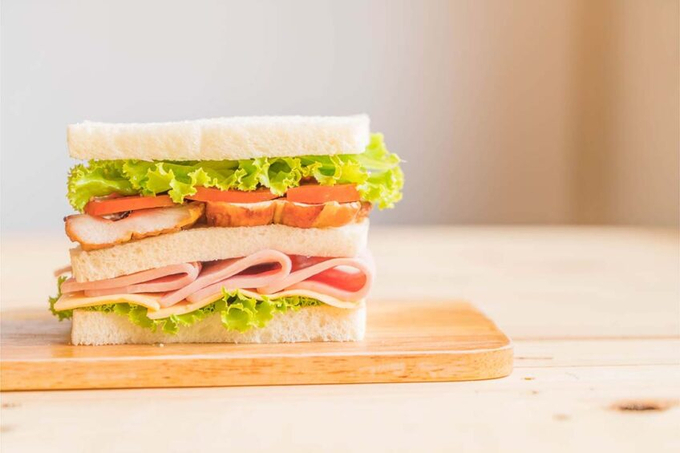November 26, 2025 | 11:16 GMT +7
November 26, 2025 | 11:16 GMT +7
Hotline: 0913.378.918
November 26, 2025 | 11:16 GMT +7
Hotline: 0913.378.918

Competition over chicken sandwiches is serious, with millions of dollars in profits at stake in any given week. Photo: Canva.
Chick-Fil-A, one of the 2 US restaurant chains that lead chicken sandwich sales across the nation, has recently backtracked on its no-antibiotics-in-chicken pledge, a move that company leaders hope will not negatively affect the chain’s position in the highly-competitive so-called ‘Chicken Sandwich Wars’.
Competition over this menu item is serious, with millions of dollars in profits at stake in any given week.
Chick-Fil-A had had a “no antibiotics ever” pledge for sourcing its chicken since 2015. These pledges were made by several restaurant chains in recent years in response to resistance developing in bacteria to antibiotics used to treat infections in people – antibiotics that have also been used in large amounts in livestock production to both boost growth rate, prevent disease and treat actual infections.
Going forward, Chick-Fil-A will use chicken meat from chickens treated only without antibiotics that are not important to human medicine. This is because the company simply cannot acquire sufficient supplies of chicken completely free of antibiotics. Last year, major chicken producer Tyson Foods reintroduced antibiotics into the production of chicken that the company had previously produced without any antibiotics.
Producing chicken without any antibiotics is not easy to do in the large barns typical in North America. Looking at Canada, whilst some farmers do not use any antibiotics in broiler production, the industry has not completely banned their use. That is, in Canada over the past 10 years, category I and II antibiotics (very high and high importance in human medicine) have been banned for flock disease prevention and health promotion. However, although Chicken Farmers of Canada had intended to also phase out the preventative use of category III antibiotics (of medium importance in human medicine; only one of them is used right now, Bacitracin), this category is still permitted.
The industry determined its ban would result in serious health issues for birds, impacting bird welfare and requiring additional antimicrobial interventions.
Other Chicken Sandwich Wars competitors such as Burger King and Popeye’s already have committed only to using chicken from birds treated solely with non-medically-important antibiotics.
Meanwhile, in response to the Chick-Fil-A announcement, Shake Shack is promoting its chicken sandwich made from birds that have never received antibiotics, and is offering a deal on sandwiches on Sunday, the one day in the week that Chick-Fil-A is closed.
The Chicken Sandwich Wars began in 2019 when Popeye’s and Chick-fil-A started vying for attention for this menu item on social media. The media hype, combined with the success of this menu item, prompted many major restaurant chains to either highlight or re-brand or add a chicken sandwich to their own offerings. This has not stopped. It’s been determined by research firm Technomic Ignite that since 2019, chicken sandwich inclusion on menus have increased by over 4% year-over-year.
However, during a recent interview on Nation’s Restaurant News, Vijay Sukumar, chief food innovation officer with Kentucky Fried Chicken, notes that there’s a ‘new dynamic’ to the Chicken Sandwich Wars. Younger consumers want more variety so more sauce flavours are now being offered.
“In the future,” Sukumar stated, “I think we’ll see more innovations coming not only in the form of sauces, but also in the bread… There are so many more opportunities out there.”
(PW)

(VAN) Brazil's COP30 presidency pushed through a compromise climate deal on Saturday that would boost finance for poor nations coping with global warming but that omitted any mention of the fossil fuels driving it.

(VAN) Poultry farmers in the UK have been warned that they could face one of the worst winters yet for bird flu.

(VAN) Prices of main-crop paddy have risen sharply, with jasmine rice hitting 16,100 baht per tonne — the highest level in years.

(VAN) In Brazil, FAO unveiled a series of reports and initiatives showing how sustainable agrifood systems are a solution to the climate crisis.

(VAN) With names like neodymium and dysprosium, rare-earth elements sound exotic — and their perceived scarcity has only added to the mystique.

(VAN) In a new study published in Trends in Biotechnology, researchers used a gene-editing technology called CRISPR to increase a fungus's production efficiency and cut its production-related environmental impact by as much as 61%- all without adding any foreign DNA.

(VAN) A top official in Beijing’s Cop delegation says China is committed to clean energy – but US’s absence is a problem.